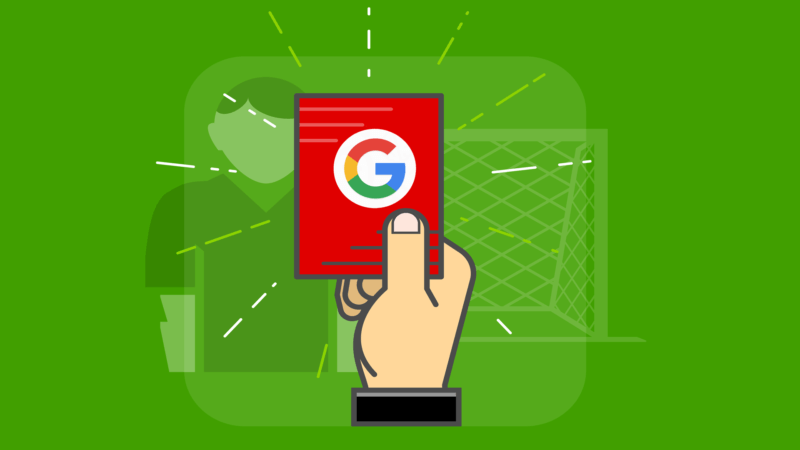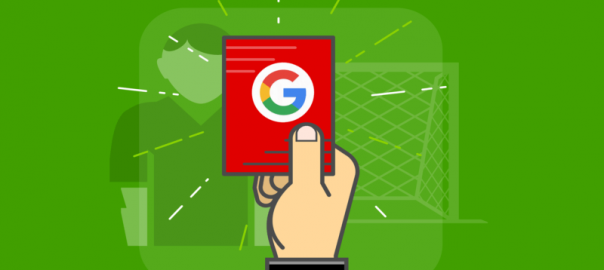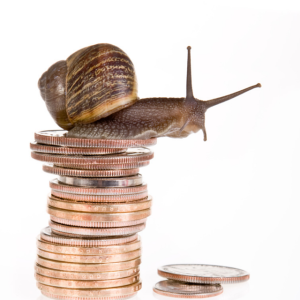Contributor Kaspar Syzmanski addresses some of the most commonly raised questions and issues regarding Google penalties.

For webmasters affected by a manual action, understanding why a particular penalty is applied, what the consequences are and how to adequately address the issue are key to resolving a potentially critical situation.
When penalties are discussed, some questions seem to come up more often than others. In this Q&A, which is a supplement to The Ultimate Guide to Google Penalties, I’ll include the questions I’ve heard asked most frequently, along with actionable answers.
Experience shows that manual penalties are infrequently issued, and only for serious offenses. Human errors in the process, while not impossible, are extremely rare. It is reasonable to assume that once a penalty has been triggered, it is not a false positive. As far as Google Webmaster Guidelines go, an actual violation was confirmed.
Ignoring a manual penalty is not a viable course of action. From an online business perspective, a manual penalty poses an incalculable risk to a website’s performance, even if it initially seems to have little to no impact on the site’s organic search visibility. It is possible for the effects of a penalty to only be felt over time, especially when factors such as technical setup, Google policy changes and increased competition in search are constantly in flux. And multiple violations can attract a closer evaluation and may trigger additionally manual penalties, effectively branding a site a repeat offender.
That being said, a manual penalty applied to a website does not spell doom for future search visibility prospects. At the point of writing, any manual penalty is revocable. More importantly. Google does not hold a grudge against past offenders, which only makes sense given their continued commitment to serving Google Search users.
Readers who do not find the specific answer they are looking for below, or in the Ultimate Guide, are encouraged to contact the author so that we can update the guide to be even more comprehensive.
Q: My site was just penalized. When do I apply for reconsideration?
The right time to apply for reconsideration is upon permanently fixing the reason for the penalty and putting together documentation to show the steps taken to resolve the issue, which can be provided for the Google team to review. Applying prematurely is counterproductive and likely to prolong the problem.
Q: How do I go about manual penalty removal?
- Carefully read the notification message received from Google and look for penalization reasons highlighted and possible clues regarding how to solve the issue.
- Analyze the problem. This process requires gathering data and can take time, possibly several weeks.
- Fix the issue, ensure Google Webmaster Guidelines compliance going forward and document all steps taken.
- Submit a short and to-the-point rationale along with the reconsideration request that documents the efforts you made to address the penalty. Make sure all claims are replicable. Do not negotiate or explain — just focus on what has been done to fix the problem.
- Avoid major changes to the site while the request is being processed. Too many fluctuating search signals at one time won’t improve a site’s standing in Google.
Q: My reconsideration request was rejected. What now?
If at first, you don’t succeed, start the process anew, as described above — there is no limit to how many times you can apply for reconsideration. If at a loss, procure the assistance of an SEO professional who can assess the damage and identify a solution.
Q: My site has been affected by a manual penalty, but the impact does not seem severe. Can I just ignore the penalty and go about my business as usual?
Penalties can be adjusted and refined, and their visible impact may change over time. It is not recommended to ignore any existing manual penalty.
Q: It seems to take weeks before a reconsideration request is processed. How about I apply now and work on the fixes for the site in the meantime?
That is not a recommended course of action. Any prematurely submitted request may result in a rejection, which will require even more thorough clean-up efforts in the subsequent attempt.
Q: What’s the difference between a manual penalty and an algorithm update like Panda or Penguin?
Manual penalties are applied by the Google Search Quality team if egregious Google Webmaster Guidelines violations are identified. They typically trigger a notification in Google Search Console.
Algorithms utilize search-relevant signals to rank sites accordingly. Technically, there are no “algorithmic penalties” — if your site loses visibility after an algorithm update, that generally means that ranking signal weighting has been adjusted. There are no notifications for sites affected by any algorithmic recalculation.
Q: I just purchased an aftermarket domain or an existing site which is still penalized. I’m not aware of black hat techniques and/or Google Webmaster Guidelines violations committed by previous owners. Do I tell Google it’s not my fault?
No. It does not matter who’s responsible for existing violations. It’s only relevant whether they are present or not.
Q: I just purchased an aftermarket domain or an existing site. Is it possible to verify ownership and see past notifications/warnings?
No, currently Google is not offering this option. Be sure to request full Google Search Console message history disclosure as part of the domain/site transition.
Q: Is it okay to fix the issue that triggered a manual action, apply for reconsideration and roll back once it was granted?
That is not a recommended course of action. Manual penalties can be reapplied.
Q: Is there an avenue for one-to-one communication with Google to explain our situation regarding a manual penalty?
Unless you have a chance to personally meet a sympathetic Googler from the relevant team presenting at a search industry event, there’s no channel offering broad one-to-one communication between site owners and Google.
Q: The reconsideration request was granted; however, the manual penalty warning remains visible in Google Search Console. What now?
On occasion, the established process tends to fail. If the manual penalty message hasn’t disappeared from Google Search Console, highlighting the issue in a second reconsideration request is recommended.
Q: There’s no manual penalty warning visible in Google Search Console, yet the site has suddenly dropped in organic search. What’s happened?
The reason for a sudden drop in organic search may also be technical or related to a new or refined Google algorithm kicking in. The only method to identify the actual reason causing the issue is to conduct a full SEO audit.
Q: The message received does not match the language of my website. How do I address the Google team in my reconsideration request rationale?
The Google team responsible for processing reconsideration requests has the capacity to cover many languages, including all major European languages. If in doubt, apply for reconsideration in English.
Q: What’s the expected turnaround time for a reconsideration request to be processed?
Currently, Google does not officially guarantee a specific turnaround time. Experience derived from a substantial volume of reconsideration requests for individual sites submitted within the last 24 months as of writing indicates that reconsideration request processing can take between several hours and several weeks. There’s no accurate way of predicting the estimated waiting period.
Q: Important updates are pending release; however, the website is penalized. Is it recommended to still go ahead even though the manual penalty isn’t resolved?
That depends on the type of penalty applied, how it affects the website and what kind of changes to the website are planned. In most cases, it is prudent to hold off on any releases and address the manual penalty problem first. Once it is resolved, the impact of any release can be assessed more accurately.
[Article on Search Engine Land.]
Opinions expressed in this article are those of the guest author and not necessarily Marketing Land. Staff authors are listed here.
Marketing Land – Internet Marketing News, Strategies & Tips
(33)










